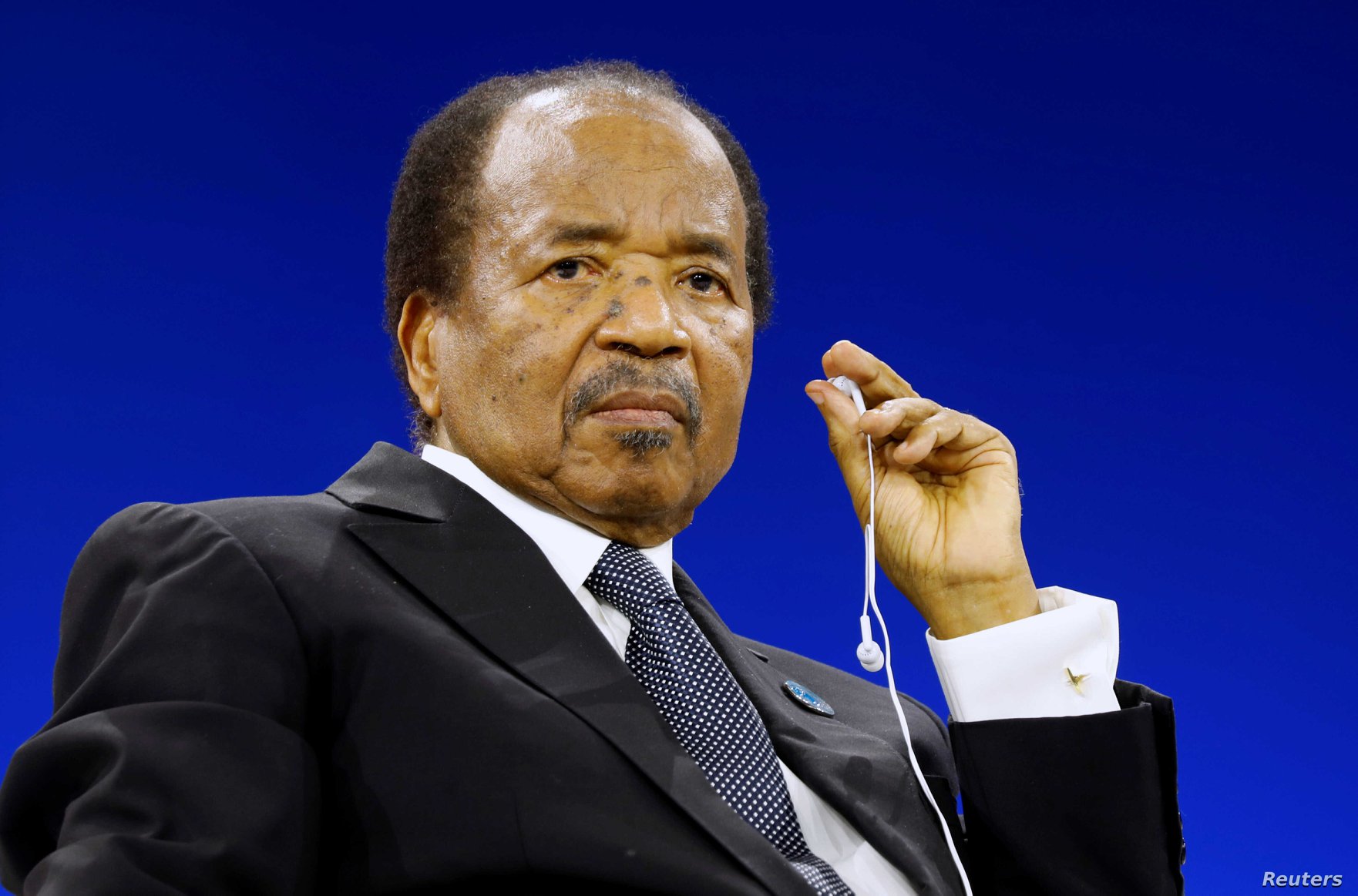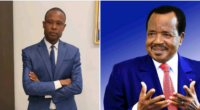Colonial CPDM Regime Intensifies Tactics to Freeze Opposition as Biya Eyes Half-Century in Power
By Andre Momo, Yaoundé, July 22, 2025
As Cameroon approaches the October 12, 2025, presidential election, the ruling Cameroon People’s Democratic Movement (CPDM), led by 92-year-old President Paul Biya, has escalated its efforts to suppress opposition and secure his unprecedented 50-year rule. With Biya’s current 43-year tenure already making him one of the world’s longest-serving non-royal leaders, credible sources reveal a calculated strategy to extend his presidency to a historic half-century, cementing what critics call a “colonial-style” grip on power.
Orchestrated Moves to Block Maurice Kamto
On Monday, July 21, 2025, the deadline for presidential candidacy submissions closed, revealing a shocking maneuver to derail Professor Maurice Kamto, leader of the Cameroon Renaissance Movement (CRM). Sources report that CPDM operatives engineered a last-minute challenge to Kamto’s candidacy by exploiting electoral laws. An obscure candidate, allegedly backed by CPDM loyalists, announced their candidacy within the CRM, casting doubt on Kamto’s eligibility. This followed a controversial ruling by the Ministry of Territorial Administration, led by Paul Atanga Nji, declaring the CRM illegitimate for the 2025 election due to its boycott of the 2020 municipal and legislative elections.
Kamto, a renowned legal scholar and the 2018 presidential runner-up, attempted to circumvent this by aligning with another opposition party in Douala. However, the regime’s swift countermove—described by analysts as a deliberate tactic to sow confusion—has left his candidacy in limbo. “This is classic Biya playbook: divide, discredit, and disqualify,” said a political observer on X, echoing sentiments of widespread frustration. The CRM, a significant opposition force, faces further hurdles after Kamto’s 2019 arrest and the continued detention of party members, highlighting the regime’s pattern of repressing dissent.
Nepotism and Ethnic Favoritism to Silence Dissent
To bolster its control, the CPDM has strategically appointed children and relatives of regime loyalists to key administrative positions, particularly from Biya’s Beti-Bulu ethnic group. On July 22, 2025, Biya named several prefects and sub-prefects, including:
-
Tam Likeng Richard Marcel, prefect of Mayo-Louti, son of Minister of Posts and Telecommunications Limbom Likeng.
-
Eto Famous Justin Hector Daniel, prefect, son of Minister of Higher Education Jacques Fame Ndongo.
-
Sadi Gilles Christian, deputy prefect of Nyong and So’o, son of Minister of Communication René Sadi.
-
Bomba Nkolo Ofile, deputy prefect of Monatele, daughter of former Minister Cecile Bomba Nkolo.
-
Tchuente Tsemo Liliane Flore, Secretary General of the Eastern Region Governor’s Services, niece of Minister of Scientific Research Madeleine Tchuente.
These appointments, targeting the South and Centre regions where opposition support is strong, are seen as a move to entrench loyalty and suppress dissent. Critics argue that this “system renewal strategy” prioritizes familial and ethnic ties over merit, reinforcing Biya’s clientelist network. “The CPDM is building a dynastic fortress to protect Biya’s legacy,” a Yaoundé-based analyst told BaretaNews, pointing to the regime’s history of favoring the Beti-Bulu in key posts.
A Half-Century of Rule in Sight
Biya’s re-election bid, announced on July 13, 2025, aims to extend his rule to 2032, when he would be 99, effectively reaching 50 years in power since his 1982 ascension. The CPDM’s dominance—holding 156 of 180 parliamentary seats and all 70 elected Senate seats—ensures a rigged electoral framework, with the Constitutional Council and Elections Cameroon (ELECAM) staffed by Biya loyalists. The regime’s tactics, including vote-buying, media censorship, and opposition rally bans, have been well-documented, with Human Rights Watch noting a “broader pattern of free speech restrictions” ahead of 2025.
The postponement of parliamentary and municipal elections to 2026, authorized by Biya, further limits opposition parties’ ability to field candidates, as Cameroonian law requires parties to have elected representatives to nominate presidential candidates. This move has sparked accusations from SDF leader Joshua Osih and Kamto that Biya is orchestrating a “ploy to remain leader for life.” Posts on X reflect public outrage, with one user stating, “The electoral code is a disaster, designed to keep CPDM in power.”
A Fragmented Opposition and a Hostile Environment
Cameroon’s opposition, comprising over 300 parties, remains fragmented, weakening its challenge against Biya. The CPDM has historically co-opted smaller parties, such as the UNDP and UPC, to maintain its parliamentary majority, a tactic rooted in former President Ahmadou Ahidjo’s north-south alliance. Recent defections, including former SDF G27+ members like Jean Tsomelou to the NUDP, underscore this division, while Hon. Jean Michel Nintcheu’s Front for Change in Cameroon (FCC) operates independently, further splitting the opposition vote.
The regime’s crackdown extends beyond electoral manipulation. A 2024 ban on discussing Biya’s health, enforced by Atanga Nji, and the establishment of media monitoring units signal a tightening of civic space. The Anglophone crisis, ongoing since 2016, has seen security forces kill civilians and displace thousands, while Boko Haram’s attacks in the Far North add to the regime’s pretext for authoritarian measures.
A Colonial Legacy and a Call for Resistance
Critics argue that Biya’s tactics mirror colonial strategies of centralized control, inherited from French and British rule, which entrenched linguistic and ethnic divisions. The CPDM’s claim of “democratization” since 1990 is dismissed as a facade, with Biya’s 2008 abolition of term limits and alleged electoral fraud in 1992, 2011, and 2018 elections fueling skepticism. As one X user warned, “Biya and his clique will only leave if chased out, and it won’t happen at the ballot box.”
With the opposition reeling and the CPDM consolidating power through nepotism and repression, Biya’s path to a 50-year rule appears clear. Yet, growing public discontent, evidenced by declining voter turnout (from 80.4% in 1992 to 53.3% in 2018), suggests a restless populace. As Cameroonians face poverty—8 in 10 workers are informally employed, and a third live on $2 or less daily—the regime’s focus on perpetuating power risks igniting further unrest.
Andre Momo is a political correspondent for BaretaNews. Stay tuned for updates on Cameroon’s 2025 election and the opposition’s fight against the CPDM’s iron grip.




